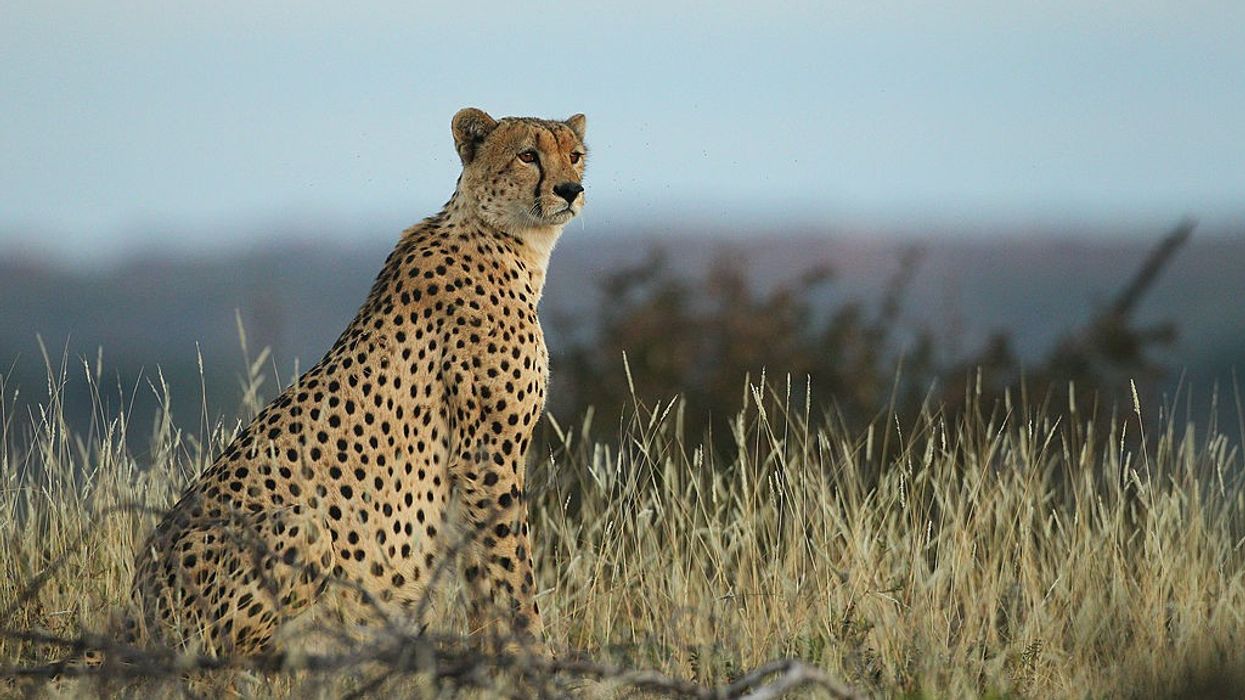The relocation of 12 cheetahs from South Africa that will arrive in India on Saturday comes three years after the idea was first mooted by the government of India.
India originally initiated plans to bring the cheetahs there by mid-2022, but a delay in finalising a Memorandum of understanding between the two countries led to a postponement, with the animals continuing with their quarantine at a reserve in Limpopo province.
In January 2020, the Supreme Court permitted the central government to introduce the Southern African cheetah to suitable habitat in India as part of a trial to see if they can adapt, said a report compiled by Vincent van der Merwe, the coordinator of the cheetah metapopulation in South Africa.
This ruling came in response to an application filed by the National Tiger Conservation Authority (NTCA) seeking permission to introduce the Southern African cheetah from Namibia. Eight cheetahs from neighbouring Namibia were sent to India in September last year.
A month after the ruling, the NTCA and Wildlife Institute of India (WII) contacted Dr Leith Meyer and Dr Adrian Tordiffe of the Faculty of Veterinary Science at the University of Pretoria with regards to the potential reintroduction of South African cheetah into India.
Tordiffe put WII in touch with Van der Merwe in July 2022, after which a request was made to the South African Department of Fisheries, Forestry and Environment to supply India with 12 metapopulation cheetahs as part of their first reintroduction attempt.
The report said that although cheetah was a historically occurring species in India, they had become extinct due to hunting in colonial times and the transformation of the landscape due to the agricultural practices by human populations growing exponentially.
"The reintroduction of cheetahs into protected areas within their historical range in India will restore natural evolutionary pressures that have been absent from these systems for at least fifty years," it said.
"Cheetah reintroduction in India will represent a step forward in bringing back a historically occurring species to its protected area network. While this may bring only localised ecological and evolutionary benefits, the restoration of India's natural history will have economic and cultural benefits," the report said, citing how in Southern Africa, wildlife reintroductions are accompanied by increased tourism, employment opportunities, increased revenue, improved wages as well as increased morale and greater sense of purpose amongst reserve staff.
The scientists said that the successful establishment of Cheetahs into reintroduction sites in India would require the regular supply of approximately 10 unrelated individuals per annum, over a ten-year period to ensure short-term genetic and demographic integrity.
"The South African Cheetah metapopulation is well placed to provide a founder population for the proposed reintroductions into India. The conservation strategy adopted in South Africa is built on the foundation of 55 years of Cheetah reintroductions and management into small, protected areas," they said.
As preparatory steps, all risks have been evaluated in detail, from the possibility of disease transmission to detailed transport requirements in both South Africa and India.
All the cheetahs have been vaccinated against relevant diseases and treated for both internal and external parasites; and issued with Health Attestation and Vaccination Certificates.
Special transport crates based on experience obtained from 50 years of cheetah transport are designed to minimise stress and allow for veterinary intervention in the case of emergency.
The cheetahs will be accompanied and monitored by participating veterinarians at all times.
The cheetahs will depart from O R Tambo International Airport in Johannesburg on Friday evening and are expected to arrive at Gwalior Air Force base in Madhya Pradesh on Saturday morning before being transported shortly thereafter to Sheopur.
Heavy lift helicopters, with closed doors, have been made available by the Indian Air Force for this purpose.
The report said that the South African cheetah population is growing at an average rate of 8 per annum and is well placed to supplement the Indian population with up to 10 individuals per year.
"The proposed reintroduction of Cheetahs into India is a high-profile conservation project. It entails the first cross-continental relocation and reintroduction of a large carnivore," the report concluded.
(PTI)













